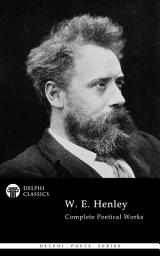William Ernest Henley
William Ernest Henley (1849-1903) was an influential British poet, critic, and editor known for his enduring Victorian verse and indomitable spirit in the face of adversity. Henley's stoic philosophy is best exemplified in his widely anthologized poem 'Invictus,' which has inspired countless readers with its message of resilience. Born in Gloucester, England, Henley faced numerous challenges in his early life, including a long battle with tuberculosis of the bone that led to the amputation of one of his legs. His experiences in hospital provided the material for his renowned collection of poems, 'In Hospital,' characterized by its vivid realism and candor about the human condition. Beyond poetry, Henley also made significant contributions to literary criticism, and his 'Views and Reviews: Essays in appreciation: Literature' showcased his discerning eye and the breadth of his literary expertise. As an editor, Henley wielded considerable influence, nurturing the talents of up-and-coming writers such as Rudyard Kipling and Thomas Hardy. His editorial work at journals such as 'The Scots Observer' and 'The National Observer' evidenced his commitment to literary quality and his knack for recognizing and shaping the literary voices of his time. Henley's contributions to literature and his indomitable spirit live on through his writing, which continues to captivate and motivate readers and scholars alike.






